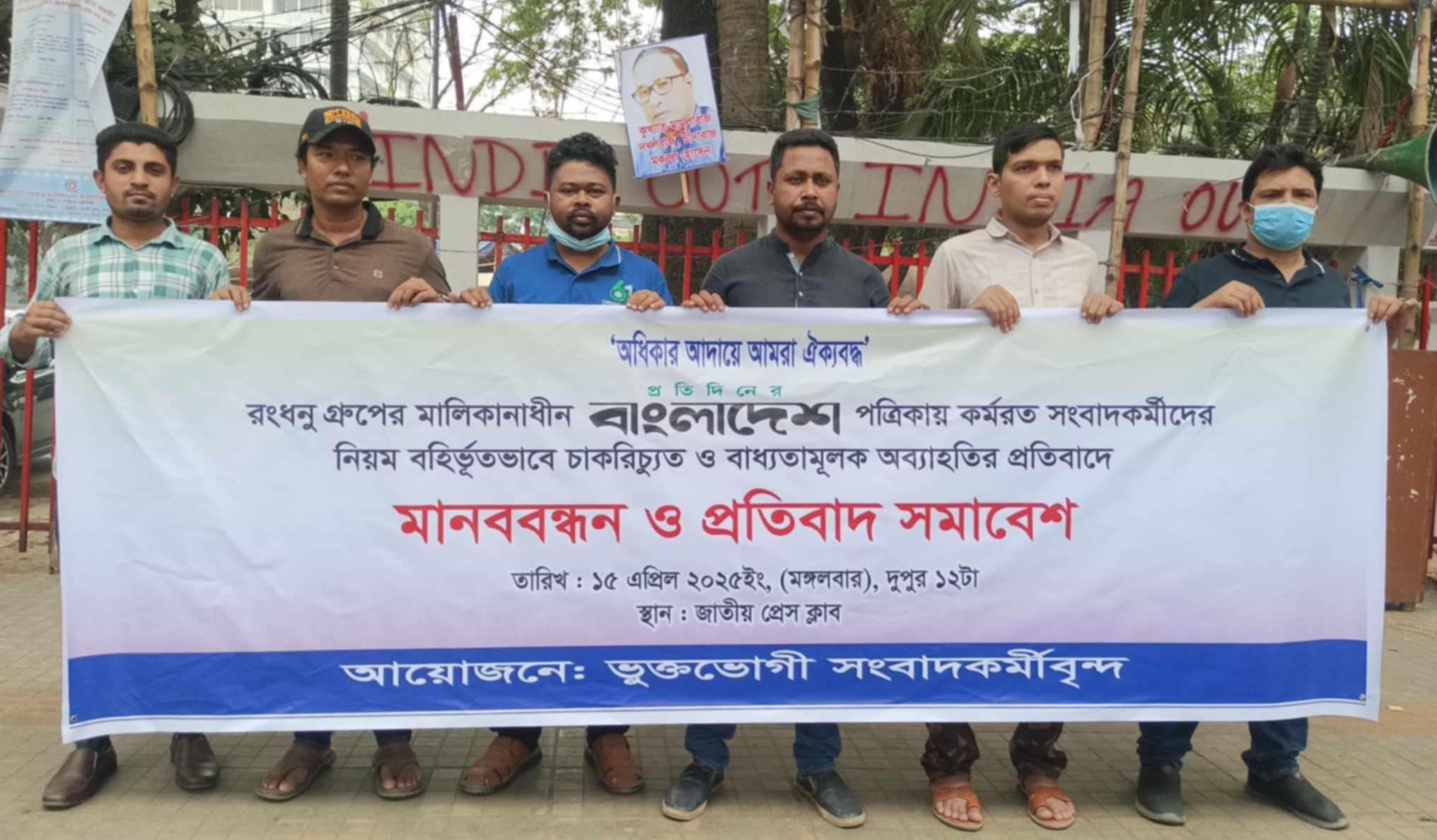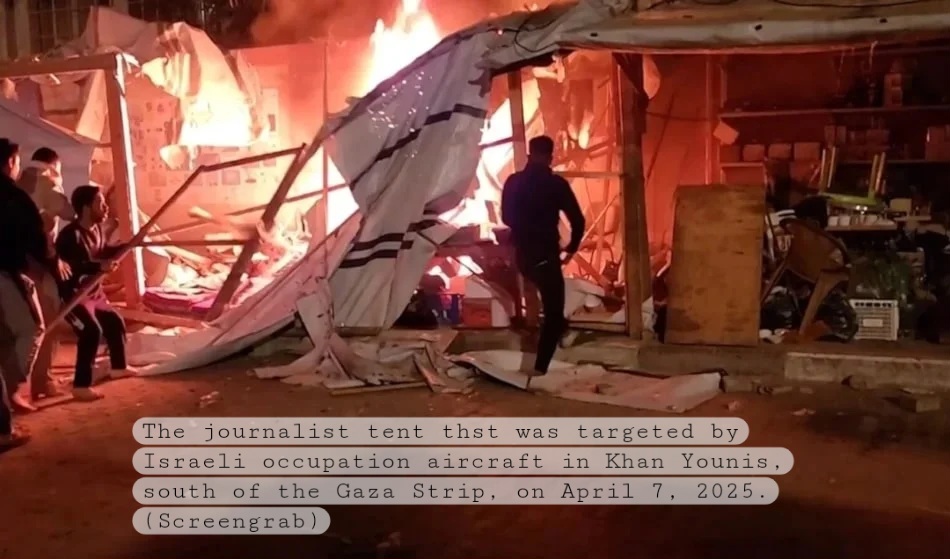DUBLIN/DHAKA – April 18, 2025 — Irish-based human rights organization Front Line Defenders (FLD) has come under scrutiny following its public statement expressing “grave concern” over alleged threats made against Bangladeshi journalist Nuruzzaman Labu. The organization described Labu not only as a journalist but also as a “human rights defender” — a designation that has sparked debate due to his documented public positions and affiliations with security forces accused of rights violations.
The concern centers around Labu’s reporting on April 11, which included images of individuals waving flags and symbols linked to internationally designated terrorist groups such as al-Qaeda. Following the publication, Labu reported receiving a phone call from an individual named “Farhad,” who allegedly objected to the use of his image in the report and made remarks perceived as threatening. Labu subsequently filed a General Diary (GD) at Sher-e-Bangla Nagar Police Station on April 15.

Photo: Facebook post of Front Line Defenders (Screenshot)
While threats against journalists are a serious issue and merit full investigation, FLD’s classification of Labu as a human rights defender has drawn criticism from observers who argue the label is misapplied in this case.
In a publicly available Facebook post dated December 16, 2014, Labu appeared to endorse extrajudicial killings — colloquially referred to as “crossfires” in Bangladesh — as a pragmatic solution in a flawed judicial system. He wrote:
“Whatever you tell I always support this kind of crossfire. Because you know, our judicial system is very poor and if you have enough money you will get relief from any kind of cases.”

Photo: Facebook post of Nuruzzaman Labu where he directly support extrajudicial killing (Screenshot)
Such statements are at odds with internationally recognized human rights norms, which strictly prohibit extrajudicial executions under any circumstances. Human rights organizations, including Amnesty International and Human Rights Watch, have repeatedly condemned such practices as violations of international law.
In addition, Labu has consistently expressed public support for Bangladeshi state security units including the Rapid Action Battalion (RAB) and the Counter Terrorism and Transnational Crime (CTTC) unit — both of which have faced widespread international condemnation for human rights abuses. In December 2021, the U.S. Treasury Department sanctioned RAB under the Global Magnitsky Act, citing “serious human rights abuse.”
Despite these allegations, Labu authored an op-ed in January 2022 titled “Elite Force RAB: Public’s Trust, Terrorists’ Nightmare”, dismissing the international criticism as “allegations by so-called human rights activists.” In the piece, he framed RAB as a vital and misunderstood counterterrorism force.
Labu has also shared personal endorsements of CTTC, including public declarations of close ties with its members and gratitude for their work. In 2019, he received a CTTC-sponsored award for counterterrorism reporting. However, in 2025, a UN fact-finding mission implicated CTTC in rights violations during political crackdowns, raising further questions about the appropriateness of awarding such honors.
Notably, Labu’s body of work appears to lack investigation into key human rights issues in Bangladesh, including extrajudicial killings, enforced disappearances, and custodial torture — areas that have been covered by other Bangladeshi media outlets such as Manabzamin and Channel 24.
Compounding the controversy is a widely circulated photo showing Labu alongside Monirul Islam, former head of the Special Branch of Bangladesh Police, who is facing allegations of grave human rights abuses.
Human rights experts argue that such affiliations and public statements conflict with the core definition of a “human rights defender” as set out by the United Nations — an individual who actively works to promote and protect human rights in a peaceful manner.
“The term ‘human rights defender’ carries legal and moral weight,” said a South Asia human rights analyst who requested anonymity due to safety concerns. “Applying it to individuals who have publicly supported unlawful state actions risks undermining the credibility of international human rights institutions.”
While FLD has not responded to requests for further comment, the organization’s decision to endorse Labu in this capacity raises broader questions about the vetting process for international advocacy and the potential reputational consequences of overlooking controversial public records.
Protecting journalists from threats remains essential, but rights advocates emphasize the need for careful scrutiny when extending human rights credentials — particularly in politically sensitive contexts where definitions carry global significance.
Source: Bangladesh Media Monitor






Leave a Reply